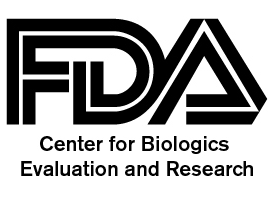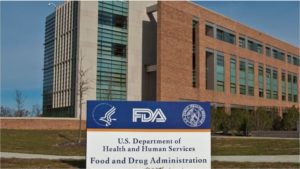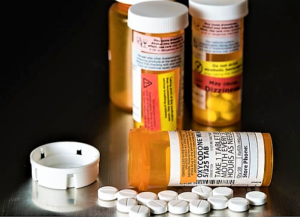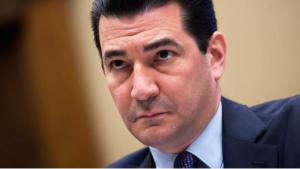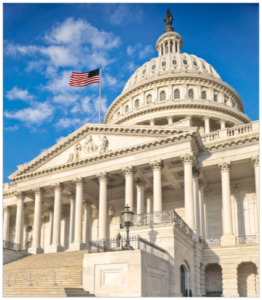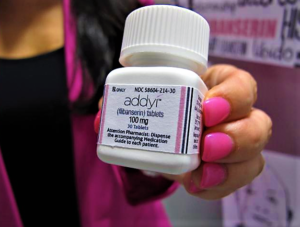- CBER Launches new Program for Early Interaction With Biologics Developers (raps.org)
The US Food and Drug Administration's Center for Biologics Evaluation and Research...announced it is launching a new program for early meetings with biologics developers...The new program, called INTERACT (Initial Targeted Engagement for Regulatory Advice on CBER ProducTs), replaces CBER's existing pre-investigational new drug meeting program...We know that academic investigators, small and medium enterprises, and sometimes even large companies can have questions regarding the path from preclinical to clinical development for biological products—particularly those that raise new regulatory questions," said CBER Director Peter Marks...the new program will be better tailored to providing input to biologics developers at early stages of development and will help sponsors plan their development programs to gather evidence needed for FDA approval more effectively.
- The ‘cruel joke’ of compassionate use and right to try: Pharma companies don’t have to comply (statnews.com)
...the FDA has a compassionate use program to allow people access to experimental drugs, it can’t compel a company to provide those drugs. The newly signed “right-to-try” law doesn’t either...the Food and Drug Administration calls its expanded access program, also known as compassionate use. It governs the use of an investigational medicine that has not been approved by the FDA outside of a clinical trial...Here’s how it is supposed to work. A physician caring for a patient with a terminal illness who has exhausted all other treatment options and isn’t eligible for a clinical trial appeals to the pharmaceutical company to provide an investigational drug that has undergone at least a Phase 1 trial, which studies the safety of a drug. If the pharmaceutical company agrees, the treating physician applies to the FDA for approval for expanded access to the investigational drug...Large pharmaceutical companies are notoriously risk averse when it comes to expanding access to medications that are still in the testing phase. Many refuse to grant access to investigational drugs outside of clinical trials...One fear they have is that an adverse event, like an injury or death — even if it is not directly due to the medication — will derail a company’s ability to push a drug forward for FDA approval...Pharmaceutical companies also worry that if an experimental medication is given to one patient through compassionate use, it must be given to all patients who request it. In the case of rare diseases...this could mean that a company would have trouble enrolling enough patients when it eventually opens a clinical trial...
- FDA names drugmakers potentially acting to delay cheap generics (reuters.com)
The U.S. Food and Drug Administration...listed a number of drugmakers it said could be improperly blocking access to their medicines in order to delay generic competition...But many of the companies immediately pushed back, saying the FDA list of drugmakers may be out of date and that some of the drugs included on it already have generic competitors...The FDA said the list contained all of the inquiries about drugs it had received from generic drugmakers since 2005. It said companies generally do not inform it if they have made samples available after a generic developer has reached out to the agency...The agency said companies on the list may be using FDA safety regulations and other tactics to deny access to their medicines from generic drugmakers hoping to copy them...The FDA is notifying the Federal Trade Commission, which can investigate anti-competitive acts, of cases where drugmakers may be blocking access to their products if there is no safety reason...
- Legislation looks to limit length of opioid prescriptions (biopharmadive.com)
Senate Health Committee Chairman Lamar Alexander...is offering drafts of two pieces of legislation aimed at addressing the opioid crisis...One measure would attempt to limit overprescribing by allowing the Food and Drug Administration to require drug manufacturers to package certain opioids in blister packs, which would allow for a set dose, such as a seven-day supply...Rather than restrict the number of days on opioid prescriptions, James Madara, CEO of the American Medical Association, wrote a letter...suggesting further research "that specifically identifies best practices in settings ranging from surgical to the emergency department."...Alexander's other proposal involves improved coordination between the FDA and Customs Border Protection. The bill would look to improve the ability to find and seize illegal drugs, such as fentanyl, at the border. It would seek to ensure the two agencies have the technology, facilities and staffing needed...
- FDA suggests new reimbursement idea for antimicrobial drugs (pharmaceutical-technology.com)
The Food and Drug Administration has published a statement from its commissioner Scott Gottlieb proposing a new reimbursement model for antibiotics and antimicrobials, which it believes will help achieve associated public health goals and overcome investment challenges...The FDA’s idea is that instead of hospitals being reimbursed for antimicrobials on a per-use, which it claims is hindering research and development in the field, they will be reimbursed for licences for certain antimicrobials drugs that target multi-drug resistant infections...The FDA believes this model will help to achieve public health goals because it would ‘create a natural market for drugs that meet certain public health criteria, by providing a predictable return on investment and revenue stream through more foreseeable licensing fees’ and ‘it would put the institutions fully in charge of stewardship of these important medicines. Once they purchase the ability to access a drug, they would be stewards of its use up to a certain number of annual doses’...the proposal would address investment challenges faced by producers of antimicrobials that target multi-drug resistant organisms because it may offer a ‘pull incentive’ that can create a predictable market for antimicrobials with a narrow set of public health applications. In addition, it could disconnect return on investment on these drugs from the volume of the drug that is used...
- Trump signs ‘right to try’ drug bill (thehill.com)
President Trump signed a bill...allowing terminally ill patients access to experimental medical treatments not yet approved by the Food and Drug Administration...Dubbed "right to try," the law's passage was a major priority of Trump and Vice President Pence, as well as congressional Republicans..."Thousands of terminally ill Americans will finally have hope, and the fighting chance, and I think it's going to better than a chance, that they will be cured, they will be helped, and be able to be with their families for a long time, or maybe just for a longer time," Trump said at a bill signing ceremony at the White House, surrounded by terminally ill patients and their families...Most Democrats and public health groups oppose the bill, arguing that it could put patients in danger...FDA oversight of access to experimental treatments exists for a reason — it protects patients from potential snake oil salesmen or from experimental treatments that might do more harm than good...Opponents also argue it gives “false hope” to patients, since drugmakers aren’t required to give unapproved medicines to patients who ask for them...Supporters say, however, it will provide new treatment opportunities for terminally ill patients who have exhausted existing options...
- FDA commissioner to drug middlemen: You’re part of the problem (cnbc.com)
Drugmakers may not be the only ones keeping less-expensive drugs off the market...The Food and Drug Administration has approved nine biosimilars, generic versions of biologic medicines, but only three are available...Manufacturers are using several schemes to "hamstring biosimilar competition," FDA Commissioner Scott Gottlieb said... he worries pharmacy benefit managers have been "complacent participants" in the schemes...PBMs and insurers may stick with branded biologics because they receive discounts from manufacturers on these treatments. That can leave consumers paying for costly treatments when less-expensive ones are available while PBMs make more money on these discounts, known as rebates...Many of these practices persist because high list prices enable lucrative returns across the drug supply chain as the spread between list and net price is carved up and shared among participants...he (Gottlieb) applauded insurers who have recently pledged to pass manufacturer's drug rebates directly on to some of their members...This is a bold action that will help create a fairer, more transparent market...I hope that other insurers, employers, and manufacturers follow their lead. I also hope that your industry will continue to innovate to make it more transparent to pass along these rebates...
- FDA sends warning letters to nine online marketers over opioids (reuters.com)
The...Food and Drug Administration...sent warning letters to nine online networks operating a total of 53 websites to stop illegally marketing unapproved versions of opioid medications...The regulator said... it is taking additional steps with these warning letters by going right to the source of the illegal supply of unapproved and misbranded versions of opioid drugs, including tramadol and oxycodone...The internet is virtually awash in illegal narcotics...Drug dealers and rogue website operators are using the internet to fuel the opioid crisis...The regulator has requested responses from the nine companies within 10 working days, or they may be subject to product seizure or injunction.
- Right-to-try bill headed for vote puts bigger burden on FDA to protect patients, Gottlieb says (statnews.com)
The House is set to take up a controversial “right-to-try” bill next week — and if it passes, the Food and Drug Administration will have to work harder to protect patients than it would if a different version of the legislation were advancing, Commissioner Scott Gottlieb told STAT...right-to-try legislation aims to give terminally ill patients a different pathway to access experimental treatments that are not FDA approved...“In terms of making sure that it balances [access to experimental drugs] against appropriate patient protections, I think the Walden bill gives us less work to do,” Gottlieb said. “With the Johnson bill, we’d have to do a little bit more … in guidance and perhaps in regulation to achieve some of those goals, and I think those are the goals that Congress wants us to achieve.”
- Health Canada approves ‘Viagra for women’ pill, loosens restrictions on taking it with alcohol (edmontonjournal.com)
In Canada, the libido pill will come with a warning to ‘limit’ alcohol consumption, in contrast to the U.S., where women must promise they’ll abstain while on the drug...Canada has approved the first “Viagra for women” pill — and, to the alarm of some experts, loosened restrictions around alcohol that have contributed to the drug’s lacklustre sales in the United States...In Canada, the libido pill will come with a warning to women to “limit” their alcohol consumption...The drug had been under review by Health Canada for more than two years. The federal agency issued a “notice of compliance” late last month...The U.S. Food and Drug Administration twice rebuffed Addyi before granting approval in 2015, and only after lobbying from a “grassroots” campaign called Even the Score — funded by Addyi’s makers, Sprout Pharmaceuticals — that accused the regulator of being sexist for approving sex medicines for men, but not for women...

